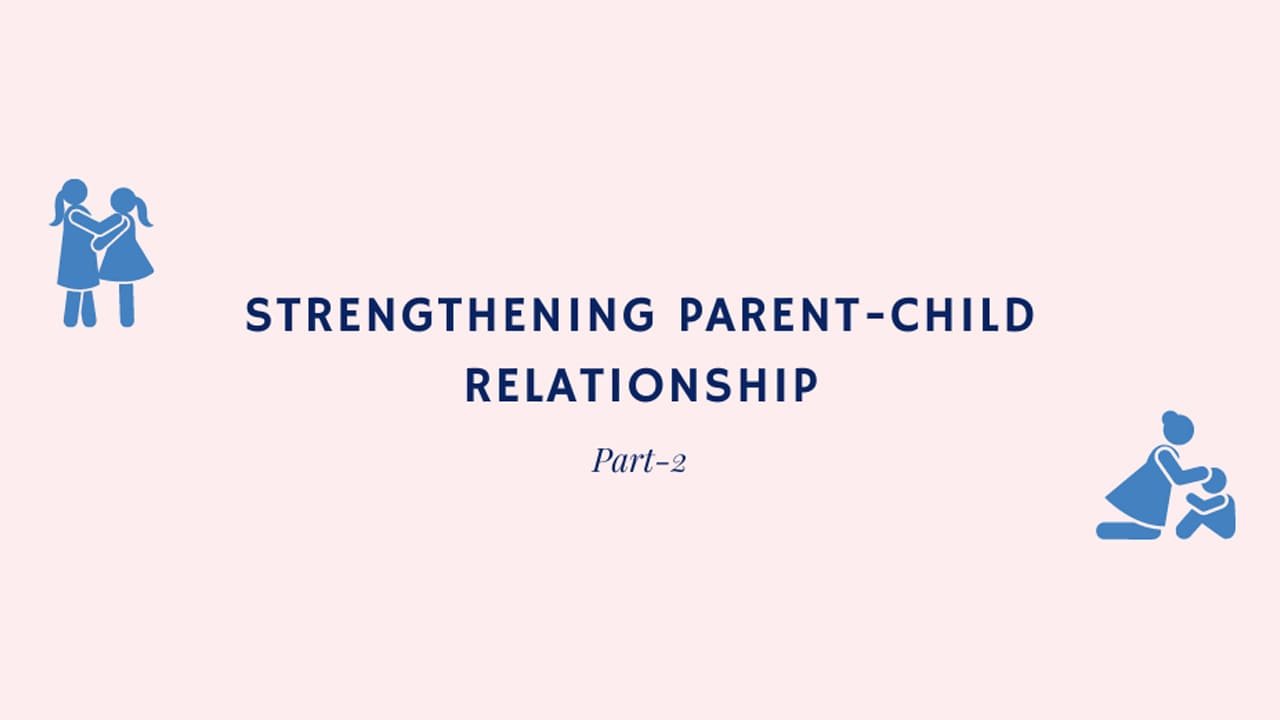Shruti Chatterjee
Counselor
We conduct various interactive sessions with the mothers to help them understand the importance of sensitive communication with children, and how can one practice it effectively. During an interaction with our counselor Ms. Shruti Chatterjee, she shared how we can communicate effectively with children in various situations, and make the child feel comforted.
Use ‘responses’ instead of ‘reactions’: Parents often ‘react’ to their child’s behavior. For example, when the child gets involved in a fight or an argument, parents often tend to correct them by asking them not to repeat that behavior and more often than not, by resorting to violence for inappropriate behavior. This kind of a reaction does not give the child an opportunity to tell their side of the story, making them feel helpless and unheard and abandoned, in case the child was getting bullied and needed an adult to confide to or to seek help. An appropriate ‘response’ would be hearing the child out and having a conversation about the incident without judgement. Try using statements like ‘Would you like to tell me what happened there?’; ‘I see you are furious, I would like to know what made you feel like that.’ Parents may help the child by giving some time and space before the discussion takes place. It is important to gauge the urgency of the discussion based on the incident. Needless to say that hitting the child is an unacceptable form of behavior from the parents.
Be interested: In a trusted and safe environment, children often have low inhibitions while talking, especially with their parents. When the parents show interest in what the child is sharing, it encourages the child to share their ideas and thoughts. Using statements like ‘Tell me more’; ‘What happened then’; ‘That’s great’; ‘This looks great’ makes the child feel heard and acknowledged.
Accept the child as s/he/they is: Avoid setting high standards for the child, the child is as s/he/they is and not as you expect them to be. Unconditional acceptance should be the way to show love and affection to a child. Parents often tend to impose their unfulfilled dreams/aspirations on their own children by saying, ‘I want you to study hard as I never could’; ‘You should become a successful person and buy a house for our family’; ‘You will take care of me when I am old’. These kinds of expectations put the child under immense pressure in a very early stage of life. The child develops the feeling of inadequacy whenever the child fails to achieve the smallest of the things. Parents can try and explore the child’s strengths by being actively involved in their day to day activities.
Avoid name calling, unkind words, and labelling: Name calling and labelling creates the feeling of hate in the child towards parents and authority figures. Parents in the fit of anger often label their child as ‘immature’; ‘ableist’; ‘bad’; ‘useless’. These words do not help the child to develop and make them think that the labels are true. In long term, it can have significant impact on children’s self-esteem and self-acceptance. Therefore, it becomes crucial for a parent to reflect and ask ‘Is what I am saying true and will it inspire my child?’
Using ‘I feel’ statements over ‘You’: It is important to use ‘I feel’ statements to communicate your feelings towards the situation instead of putting your child on the spot. For example, instead of saying, ‘You are disrespectful’ try saying ‘I felt hurt by your words’; instead of saying ‘You are lazy’ say ‘I would love it if you could help me around’; instead of saying ‘You don’t ever listen to me’ consider saying ‘I would appreciate if you consider what I say’
Apologize when you make mistakes: Culturally we have been conditioned to think that our elders are always right and if they are wrong, the children must assume the elders are apologetic without the elders saying so. This concept is false and needs to be corrected. Parents must be open to admit their mistakes and apologize for causing harm or hurt.
Seek consent of the child: Children are individuals with their own likes and dislikes. It is crucial for parents to ask for the consent of the child in situations where the child is to be involved. More often than not children are asked to perform in front of the guests ‘Show aunty how you danced in the show’ ‘Recite alphabets or poems you learnt in school’; ‘Give your grandmother a kiss’ Here, parents often do not consider what the child wants. Instead help the child develop the feeling of agency by asking ‘Would you like to introduce yourself’; ‘Grandma would like a goodbye kiss, it’s okay if you don’t feel like it, you can say no’.
Use do’s over don’ts: Parents often direct the child’s behavior through negative statements including ‘don’t’. Although children understand what NOT to do, they often feel confused about what to do. Parents can help the child by directing them with affirmative statements instead of negative statements. For example, instead of saying ‘Don’t fight with your sibling’ one can say ‘Be kind to your sibling’; instead of saying ‘Don’t go out now, you have to study’ one can say ‘Please stay at home to finish your studies’; instead of saying ‘Don’t be stubborn’ one can say ‘Please hear me out’
Appreciate the child: Using kind words for the child helps the child feel attended, respected and builds confidence. Appreciate the smallest achievements the child makes. Make sure the appreciation doesn’t only involve saying ‘very good’ and try pointing to a particularly good thing that could be seen in the behavior or activity. For example, when the child helps someone, one may say, ‘I see you could understand the person’s difficulties and you chose to help’ or when the child finishes the homework without you reminding, you could say, ‘I see you gave importance to it and found time to finish your homework’.
Please find the first part of the blog here









